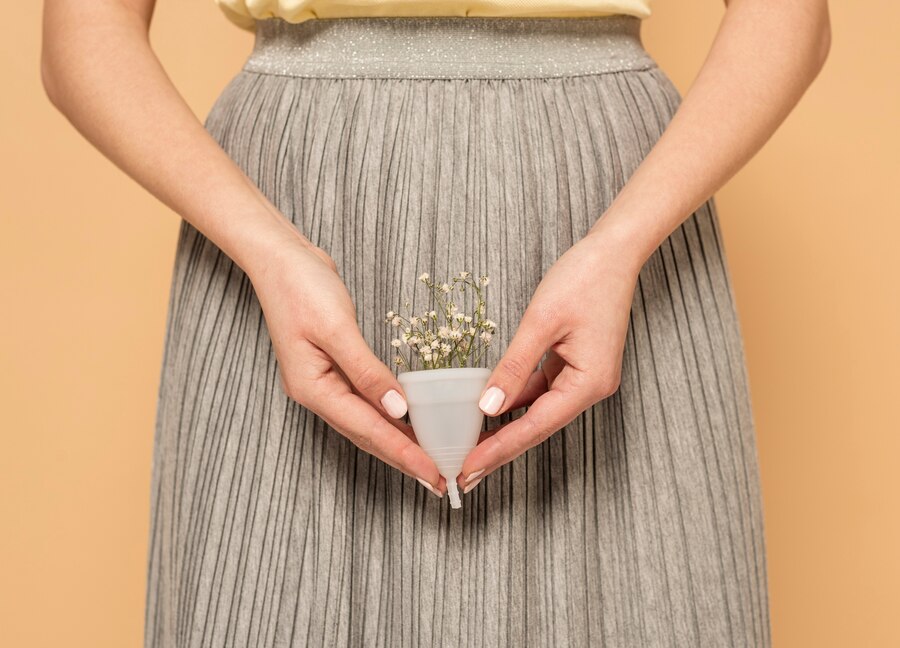Heavy periods, medically known as menorrhagia, are a common yet often misunderstood condition that affects millions of women worldwide. While it is well-known that hormones play a significant role in regulating the menstrual cycle, the connection between hormonal imbalances and menorrhagia is complex and multifaceted.
What Are Heavy Periods?
A normal menstrual cycle lasts between 21 and 35 days, and menstrual bleeding typically lasts between 3 to 7 days. However, when a woman experiences heavy menstrual bleeding—defined as losing more than 80 milliliters (about 5-6 tablespoons) of blood during a period—this condition can be classified as menorrhagia.
Heavy periods can also be characterized by periods that last longer than seven days or are accompanied by severe cramping or pain.
Estrogen Dominance
In some cases, women may experience estrogen dominance, a condition where there is too much estrogen in relation to progesterone. This imbalance often leads to a thicker-than-normal uterine lining, which can cause heavier periods.
Estrogen dominance is frequently seen in women approaching perimenopause, or those with obesity, where excess body fat contributes to elevated estrogen levels.
Complications of Menorrhagia
Chronic Fatigue, the constant blood loss and resulting anemia can lead to chronic fatigue, impairing a woman’s ability to function effectively throughout the day.
Infertility, Conditions like fibroids and endometriosis, which often cause menorrhagia, can also impact fertility. If left unaddressed, these conditions may make it more difficult for a woman to conceive.
Increased Risk of Infections, Prolonged bleeding can increase the risk of infection in the reproductive organs, leading to further complications.
Thyroid Imbalance
Thyroid hormones play an essential role in regulating the menstrual cycle. Both hypothyroidism (underactive thyroid) and hyperthyroidism (overactive thyroid) can lead to menstrual irregularities, including heavy or prolonged periods.
In cases of hypothyroidism, the body’s slowed metabolism can lead to an imbalance of reproductive hormones, exacerbating menstrual flow.
How best pads for heavy periods in India play a role in Heavy Periods?
Heavy periods require pads with high absorbency to prevent leaks and ensure comfort throughout the day. The best pads for heavy periods in India typically have a thicker core, more layers of absorbent material, and wider wings to help prevent leakage at the sides.
Many brands in India offer specific “overnight” or “heavy flow” pads, which are designed to handle more fluid.
Hormonal Birth Control, Medication and Surgical Options
Hormonal contraceptives can help regulate periods and reduce the heaviness of menstrual flow. Options include pills, patches, or IUDs.
Over-the-counter pain relievers, such as ibuprofen, can help manage pain and reduce bleeding. Your doctor may also prescribe medications specifically designed to treat menorrhagia.
In severe cases, surgical interventions such as endometrial ablation or hysterectomy may be recommended to alleviate heavy menstrual bleeding. Discuss these options thoroughly with your healthcare provider.
Embracing Empowerment,Mindfulness and Self-Care
While menorrhagia can be challenging, taking proactive steps can help you regain control. Educate yourself about your body and advocate for your needs. Surround yourself with supportive friends and communities who understand what you’re going through.
Incorporating mindfulness practices can also be beneficial. Techniques like meditation and deep breathing can help you manage stress and anxiety associated with menorrhagia. Prioritizing self-care whether through relaxation, hobbies, or pampering yourself can make a significant difference in your overall well-being.
How Practicing Self-Care and Embracing Your Experience plays a role?
Prioritize self-care during your menstrual cycle. Rest when needed, engage in activities that bring you joy, and practice relaxation techniques such as meditation or deep breathing. Listening to your body and honoring its needs can greatly enhance your emotional resilience.
Transforming your experience with menorrhagia also involves shifting your mindset. Instead of viewing your period as a burden, try to embrace it as a natural part of life. Use this opportunity to learn about your body and advocate for your health. Empowerment comes from understanding and owning your narrative.
Non-Hormonal Treatments
Tranexamic acid is a medication that helps reduce heavy bleeding by promoting blood clotting. It is commonly prescribed for short-term use during menstruation. Nonsteroidal
NSAIDs, such as ibuprofen, not only help reduce pain but can also reduce menstrual bleeding by inhibiting prostaglandins, the chemicals that trigger inflammation and uterine contractions.
Lifestyle Adjustments and Practical Solutions
Certain foods can help manage symptoms. Incorporate iron-rich foods (like spinach and legumes) to combat fatigue from heavy bleeding. Omega-3 fatty acids (found in fish and flaxseeds) can help reduce inflammation.
Regular exercise can improve overall well-being and help alleviate menstrual symptoms. Find activities you enjoy, whether it’s yoga, walking, or dancing.
Explore various products such as menstrual cups, cloth pads, or super absorbent tampons to find what works best for you. Having the right products can significantly improve comfort and confidence.
Over-the-counter pain relief (like ibuprofen) can help manage cramps. Heat pads or relaxation techniques (like mindfulness or meditation) can also alleviate discomfort.
Conclusion
Menorrhagia and hormonal imbalances are closely intertwined, and understanding this connection is essential for effective treatment and management. From hormonal fluctuations to underlying health conditions, the factors contributing to menorrhagia are diverse and complex. Through a combination of medical treatments, lifestyle changes, and, in some cases, surgical interventions, women can find relief from menorrhagia and regain control of their health and well-being.
Prestige 1.5 Litres Electric Kettle (PKOSS 1.5)|1500W | Silver - Black| Automatic Cut-off | Stainless Steel | Rotatable Base | Power Indicator | Single-Touch Lid Locking
₹699.00 (as of 20 November, 2024 18:31 GMT +05:30 - More infoProduct prices and availability are accurate as of the date/time indicated and are subject to change. Any price and availability information displayed on [relevant Amazon Site(s), as applicable] at the time of purchase will apply to the purchase of this product.)Amazon Brand - Presto! Garbage Bags Large 90 Count|24 x 32 Inches Black , For Dry & Wet waste|15 bags/roll (Pack of 6)
₹345.00 (as of 20 November, 2024 18:31 GMT +05:30 - More infoProduct prices and availability are accurate as of the date/time indicated and are subject to change. Any price and availability information displayed on [relevant Amazon Site(s), as applicable] at the time of purchase will apply to the purchase of this product.)2 Pcs Kitchen Mats, Waterproof Memory Foam Kitchen Rugs, Standing Desk Mat Floor Mats, Comfort Runner Rug Carpets for Kitchen Floor, Sink (c)
₹549.00 (as of 21 November, 2024 18:32 GMT +05:30 - More infoProduct prices and availability are accurate as of the date/time indicated and are subject to change. Any price and availability information displayed on [relevant Amazon Site(s), as applicable] at the time of purchase will apply to the purchase of this product.)Nova Lint Remover, Fabric Brush, Rechargeable, for Woolen Sweaters, Clothes, Shirts, Jackets, Burr Remover, Pill Remover from Carpets, Curtains.
₹399.00 (as of 21 November, 2024 18:32 GMT +05:30 - More infoProduct prices and availability are accurate as of the date/time indicated and are subject to change. Any price and availability information displayed on [relevant Amazon Site(s), as applicable] at the time of purchase will apply to the purchase of this product.)OPTIFINE Study Table/Bed Table/Foldable and Portable Wooden/Writing Desk for Office/Home/School (Black-COTTED-Black)
₹479.00 (as of 21 November, 2024 18:32 GMT +05:30 - More infoProduct prices and availability are accurate as of the date/time indicated and are subject to change. Any price and availability information displayed on [relevant Amazon Site(s), as applicable] at the time of purchase will apply to the purchase of this product.)Discover more from The General Post
Subscribe to get the latest posts sent to your email.





